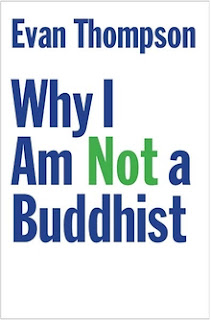Thompson is a philosopher who's spent considerable time in Buddhist communities, including conversations with the Dalai Lama. Even if not himself a Buddhist (as the title clearly states), he considers himself "a good friend to Buddhism."
On to an historical note... Max Müller, in the 19th century, shifted the translation of "the Buddha," from "Awakened One" (which is closest to the Sanskrit verbal root, budh, meaning "to awaken") to "Enlightened One." That shift is significant. Thompson states that it provided a way to make the Buddha's life fit with ideas of enlightenment swirling around in Europe at the time.
The problem for us (especially those who don't speak Sanskrit) is that when we think about "enlightenment," Immanuel Kant and the Age of Enlightenment come to mind. It was Kant who declared that we must throw off our "self-imposed tutelage," and thus (to put it in contemporary slang) "find our true self."
But the Buddha found that there was no self, and that realization is the basis of achieving nirvana... that was his awakening. The problem then, especially when we contemplate forms of science, is how Buddhist meditation and its awakening connects with neuroscience.
Enough to ponder for this post...


No comments:
Post a Comment